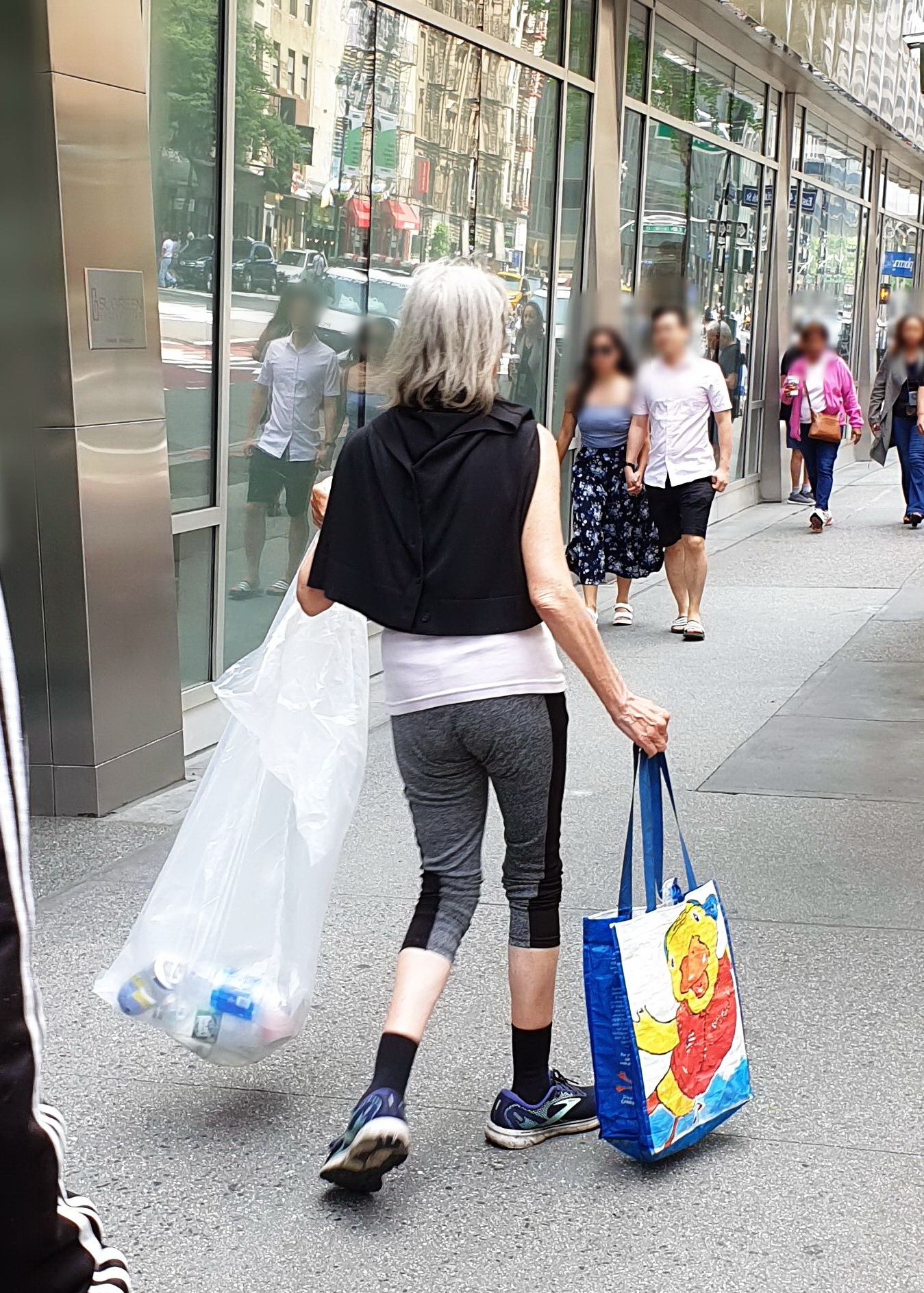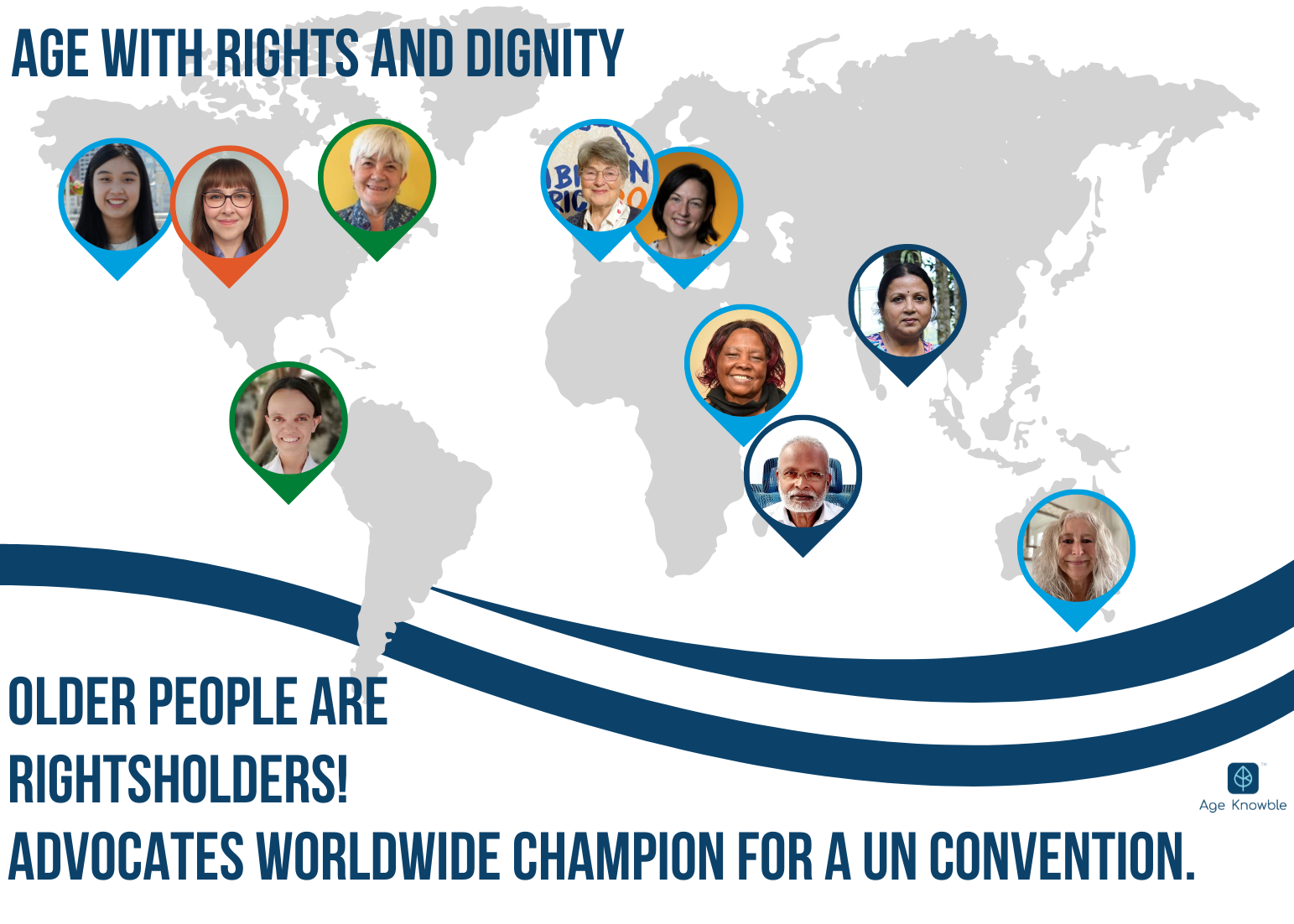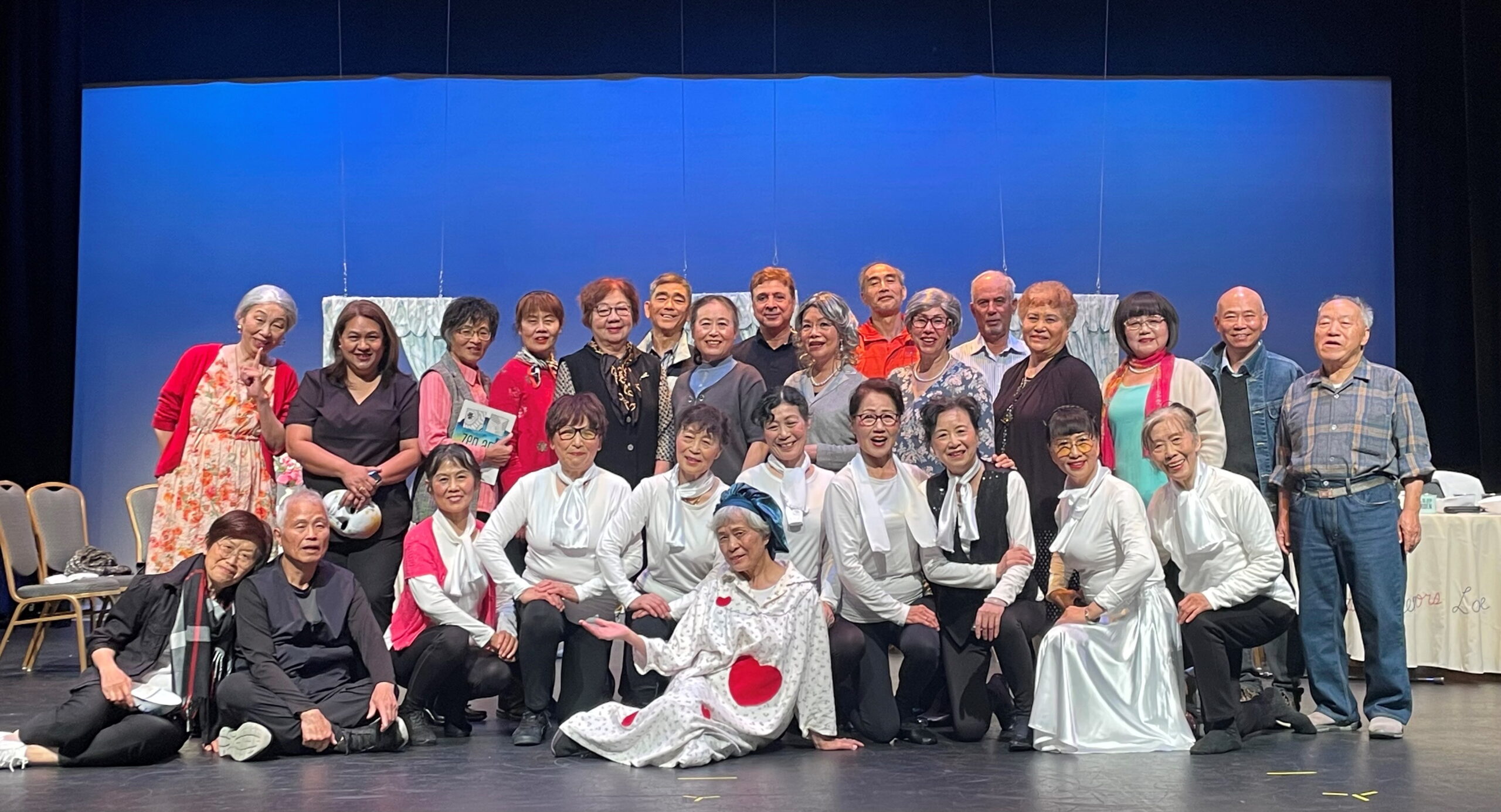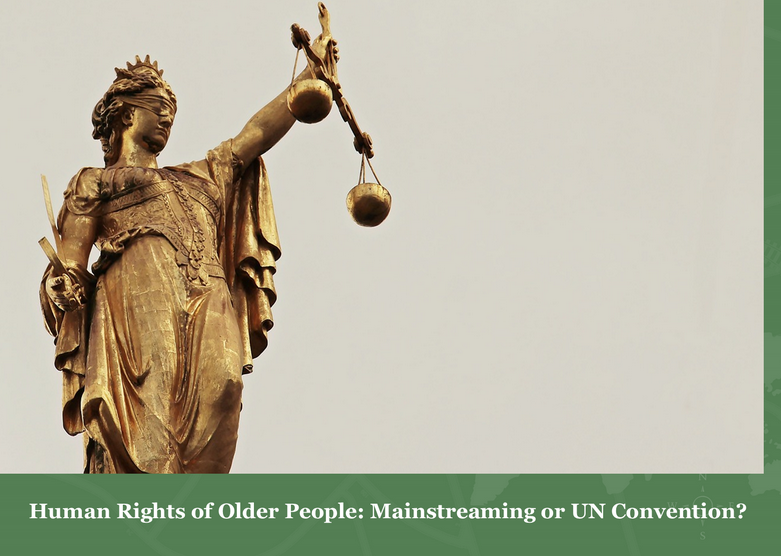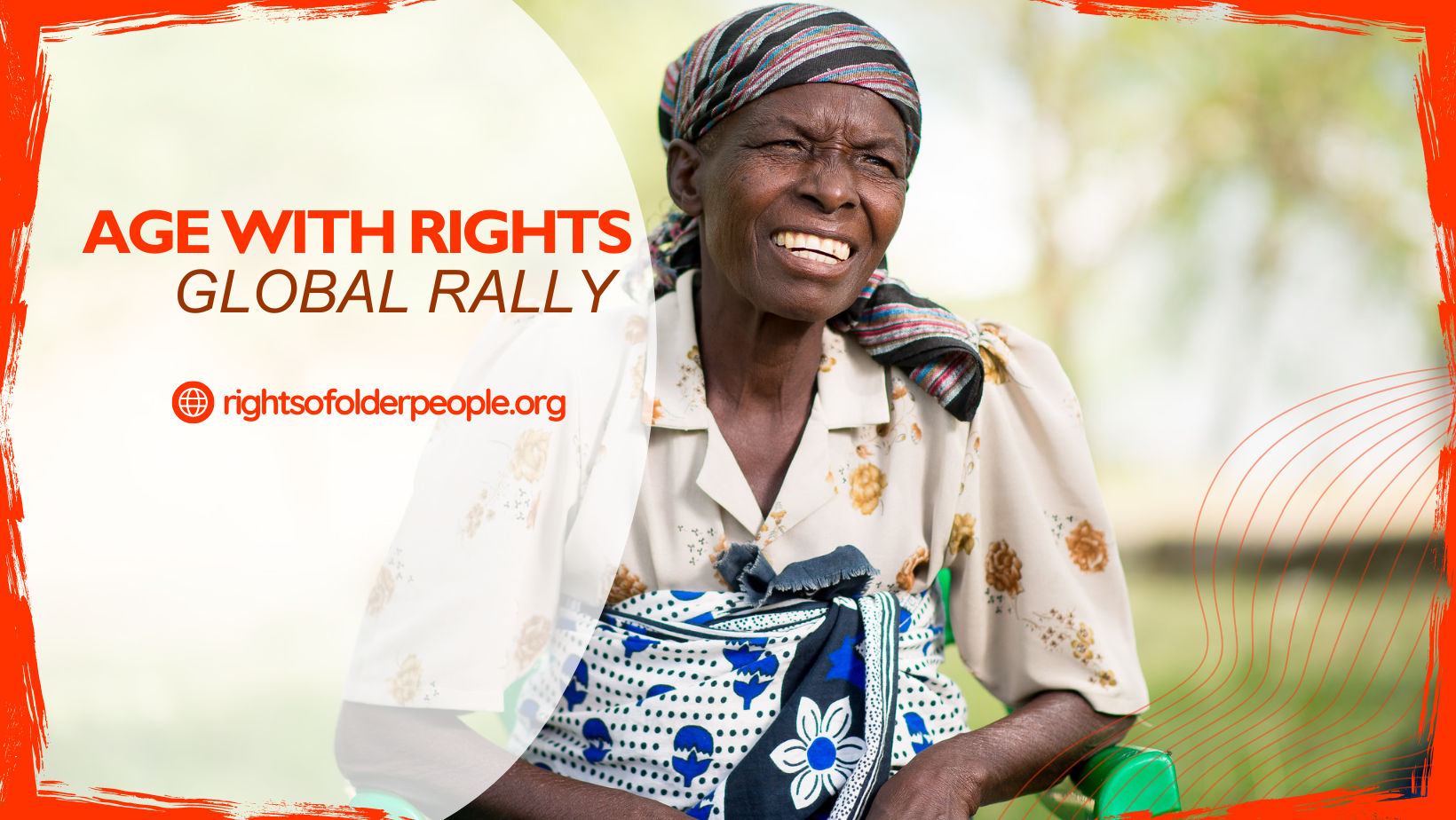It was Sunday morning during the Memorial Day weekend. I walked down Third Avenue amidst the warm breeze and bustling sounds of Manhattan feeling light hearted. We made a positive stride forward on the human rights of older people.
A Step Forward
The 14th Session of the Working Group took place before the 2024 Memorial Day weekend in New York. It was a testament to the growing support for the human rights of older people. There was an unprecedented turnout of older people, non-governmental organizations, and national human rights institutions, including youths, united in our advocacy.
After fourteen years, Member States finally acknowledged the possible existence of normative and implementation gaps in the protection of the human rights of older people. They also recommended a list of more than ten options on how to address the gaps. Notably, an international legally binding instrument, a UN Convention, was one of the recommended option. It may seem like a small victory after fourteen years of advoacy. Yet it stands as a beacon of hope for the future of human rights for older people. It is a testament to our collective global efforts and a sign of the positive change we can bring about.
A Sobering Encounter
As I walked down Third Avenue, enjoying vibrant energy of the Big Apple, my eyes caught something unusal. An older woman looked intently into a garbage bin.
I walked past her to take a photo of the buildings across the street. I heard loud rumbling of a garbage bin being turned over as I took the photo. When I resumed my walk, the older woman walked by me. I paused and took a silhouette photo of her from behind. I sensed a story.
The older woman was Anglo-Saxon. When I walked by her, Inoticed her anorexoic-looking frame, especially her legs. In one hand, she gripped a bag of empty plastic bottles, and in the other, an old shopping bag, balancing them like a teeter-totter as she walked down the street with purpose, a wistful smile, and head held high.
The older woman stopped at the garbage bin at the next block to look for more recyclable bottles. The City of New York gives a 5-cent deposit refund for every recyclable bottle returned. I wanted to learn her story, but I thought better of it. She should not disturb, whatever her path. So I imagined possible stories.
The Stark Reality
The older woman could be in a vulnerable situation – recyclable bottles for money, an anorexic-looking frame, a beat-up-looking shopping bag. Based on these assumptions, the older woman’s right to an adequate standard of living is not protected. Is there adequate old age social security for food, clothing, housing, medical care, and other necessary social services? Is she able to access the labour market and exercise her right to work, supported by skill training and free from age discrimiantion?
The older woman could be a good samaritan gathering bottles for the need of others – her smile was wistful, not sad; her head was held high, not dejected; and her gait was purposeful, not stumbling. Based on these assumptions, the older woman’s right to participate and the right to health must be protected so that she can continue to choose what she wishes to do.
Perhaps the older woman’s story is neither of these scenarios, or maybe it’s somewhere in between. Regardless, my encounter this Sunday was a stark reminder that there is no room for complacency. We need to quicken our pace toward the UN Convention. This older lady is one of the more than 8.1 billion people alive today—some already living in old age and others who will one day be fortunate enough to live in old age.
Huddles as We Leap
While the Member States agree on continuing to focus on older people’s human rights, there are differing views on how to address current gaps. This is evident in the more than ten options listed, the discussion on the recommendations, and the repeated questions by one state on a procedural matter in the closing session (11:05 to 20:20).
Divergent views exist despite the indisputable evidence presented in more than 900 documents at the Working Group, studies by the UN High Commissioner for Human Rights, and reports by the UN Independent Expert on the enjoyment of all human rights by older persons. The evidence says that there are normative and implementation gaps. The evidence says that a UN Convention is the only option that will bring about the full enjoyment of human rights by older people.
 Older age intersects all our identities. Yet we adopted most of the existing UN human rights conventions that promote and protect our identities and fundamental rights before ageing and longevity were topical.
Older age intersects all our identities. Yet we adopted most of the existing UN human rights conventions that promote and protect our identities and fundamental rights before ageing and longevity were topical.
Big leaps forward necessitates widespread advocacy across communities, sectors, and generations. Strong and united voices strengthen political will. Find out more about the movement. Join the Global Alliance for the Rights of Older People. Bring evidence of human rights violations to your National Human Rights Institutions.


